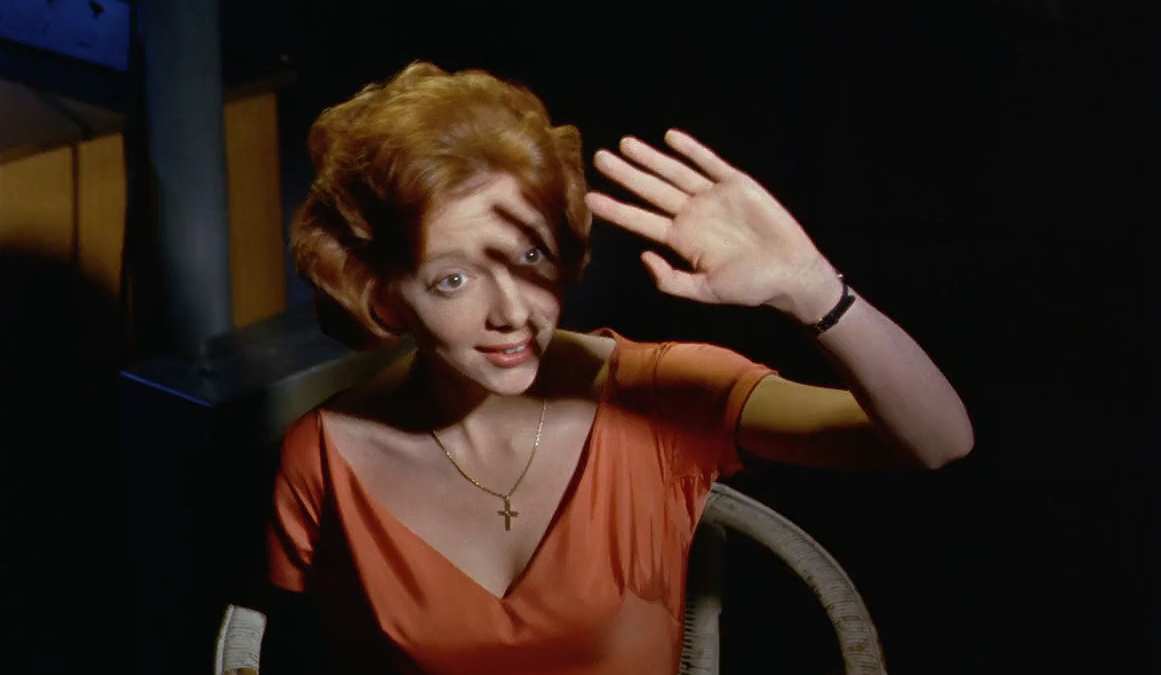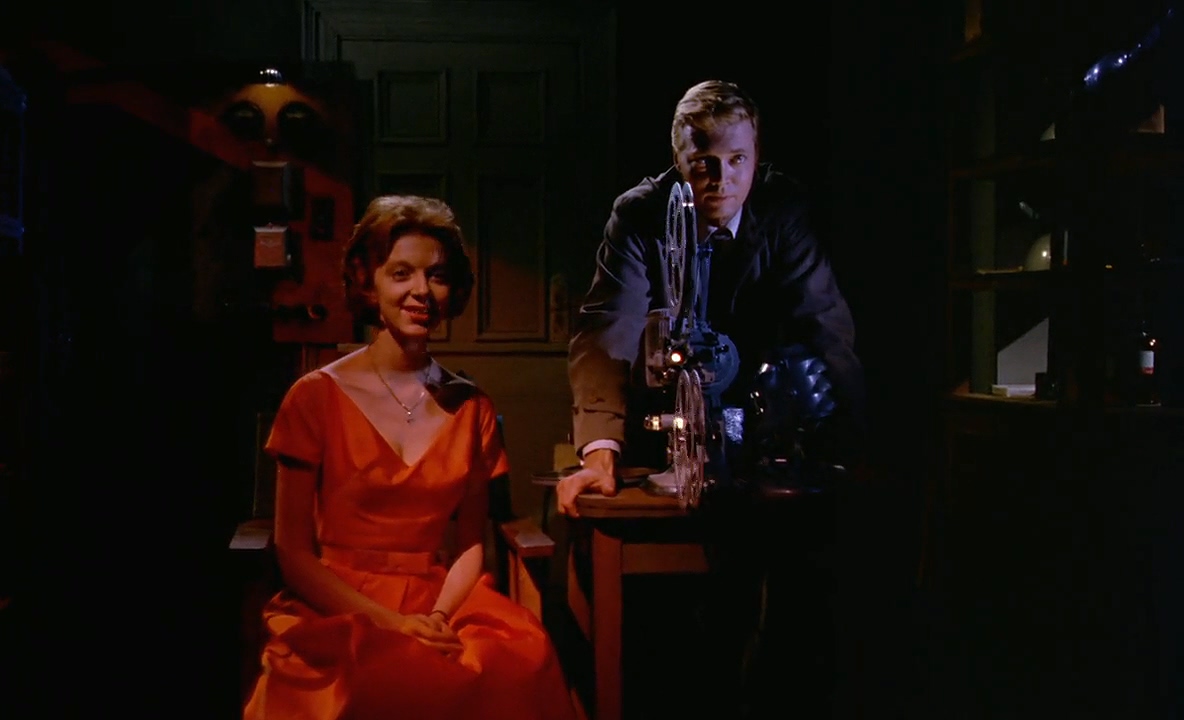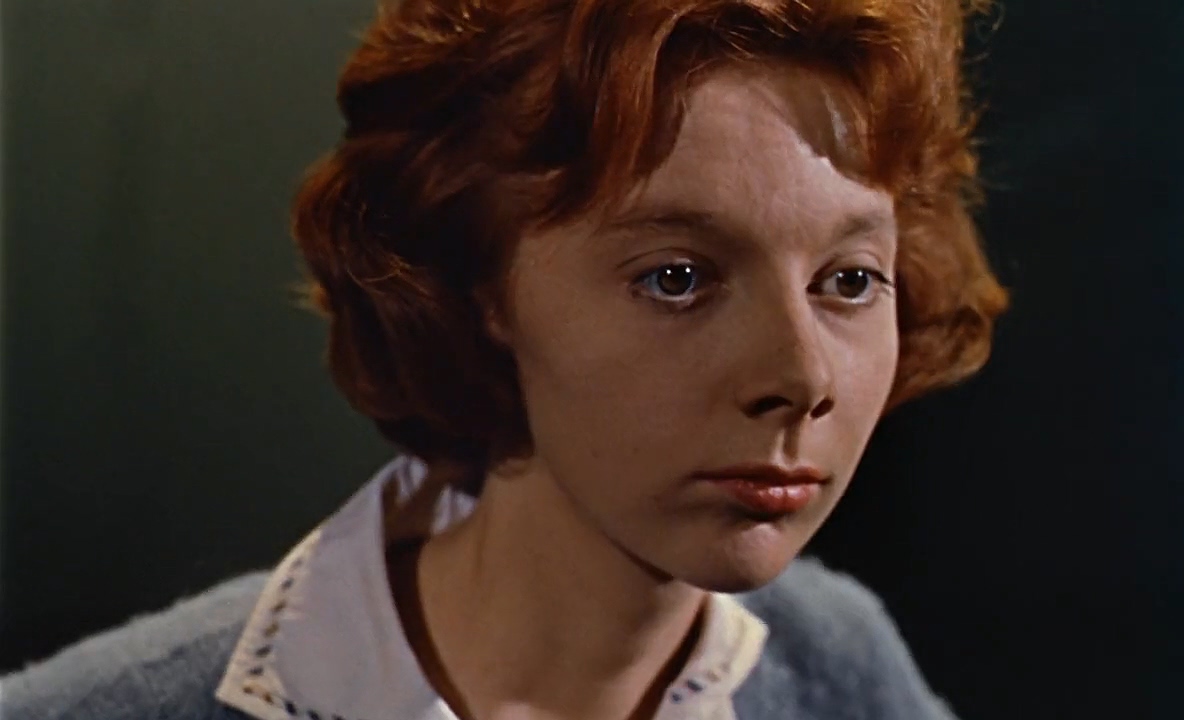by Jason Adams

The adage goes that curiosity kills the cat, but in Michael Powell's 1960 shocker Peeping Tom it's only half true -- curiosity kills one while saving the other. Mark, the deranged killer camera-man at the film's heart (played with shy finesse by Karlheinz Böhm), finds Helen (Anna Massey) by perching on her windowsill and peering in at her birthday party -- she's his downstairs neighbor and full of life as irrepressible as her vast array of bright monochromatic dresses. They seem an odd match from the start but Helen can't seem to get Mark off her mind -- there's something curious about that upstairs man, and she's going to find out if it... well you know.
Is Helen film's very first Final Girl? Peeping Tom came out a few months before Alfred Hitchocck's Psycho did -- just enough months to be Too Soon and destroy Powell's career instead of saving it like Psycho did for Hitch -- and so it should rightly be considered the first Slasher Film. And Helen plays far more perfectly into the rules of the "Final Girl" as Carol Clover set up in her 1992 book Men Women and Chainsaws than either Marion Crane or her sister Lila do. She, like the Final Girls to come, smashes the Crane sisters together -- yes her curiosity leads her into danger, but it's her curiosity that saves her in the end, as well.
Mark's voyeurism is the curdled kind -- cooked rancid by his psychologist father's provocations, he's a mutilated mind, prone to perversions, to... poking things with a stick until they are dead, quite dead. What seems to draw Helen to him is a likemindedness when it comes to inquisivity -- she also likes to look. She purrs her way into his attic apartment time and again, gently nudging at his (many, many) secrets across the run of their long conversations. And worse she can't seem to keep her whiskers out of that back-room of his, one too many times turns out.

Helen is decent and her curiosity is generally decent too -- much of it seems borne from a concern for this sad man she's uncovered -- and so Powell continually frames her as such, bathed in bright colors, oranges and especially reds as the danger for her grows more concerning, and always smacked up against the icy blue deadness of Mark. But Massey, especially in the film's final few scenes, complicates and makes us keenly aware of something deeper stirring in Helen, under the goodness. It's not only concern nipping at her senses -- as she scratches at how deep the wells of darkness go in Mark she becomes a little too fixated; obsessed in unhealthy ways of her own.
Watch Helen as she finds the snuff film of Mark's very real murders and reacts, with immediate horror yes -- Massey lets out what might be the most terrifying gasp-shudder I think I have ever heard in a movie at this moment -- but also a complete inability to look away. Powell's camera literally chases her across the room, over and through equipment shelves, her eyes fixed like lasers on what she's unsheathed. And when Mark finds her there, she doesn't scream or even recoil. She tells him, she demands of him, "I like to understand what I'm shown."
So Mark shows her -- he unsheathes his camera knife and the mirror meant to reflect his victim's death-throes, but Massey, her face contorted into a psychedelic knots, entirely seems to calm once she's seen what she needs to see. The horrors are much worse when you imagine them; the monsters much larger. All that's here turns out is a sad man, a dark attic, some emotional scarring. It's the curse of the horror film -- keep your monsters in shadow for as long as you can; daylight disinfects menace. Massey, her body unwound, proves a survivor by looking and being then able to see through.
